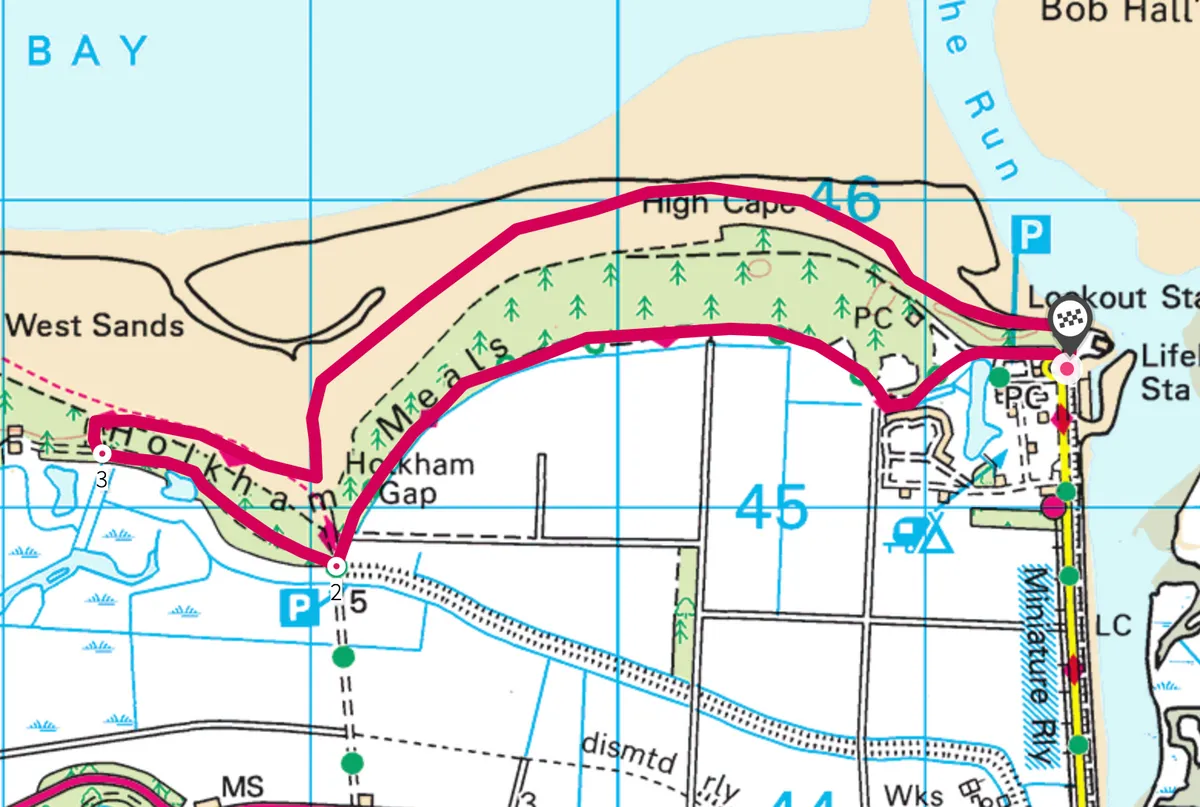It is said that in Norfolk you can tell how far you are from the coast by the roundness of the flint on the outside of the buildings – the rounder the flint, the closer you are to the sea.
The interaction between sea and land is strong along the North Norfolk coast, where mudflats and salt marshes sit alongside miles of beaches. One such beach is Holkham.
Follow this 4.8-mile walking route with a plotted OS through ancient pine woods to the spectacular Holkam beach.
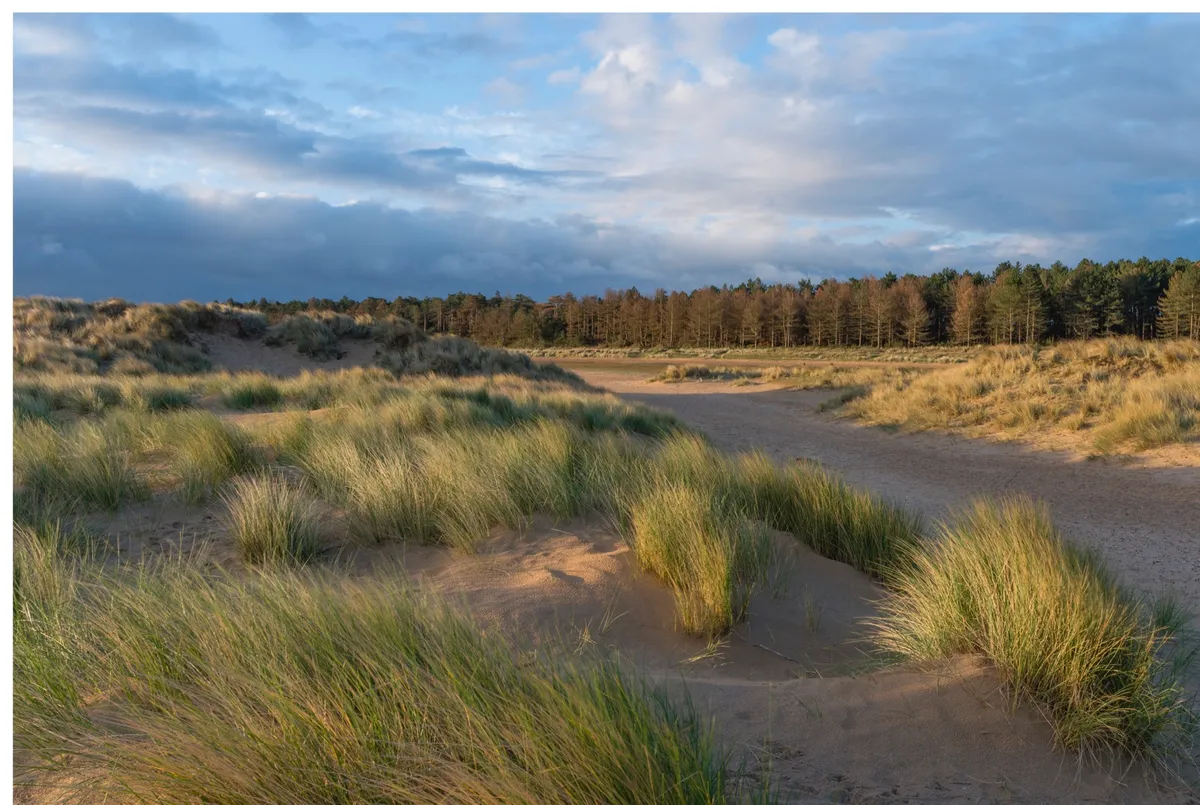
Here, a fusion of pinewoods and sand dunes tumble on to the beach and into the sea. The shoreline is part of one of the largest national nature reserves in the country, home to many rare species of flora and fauna and a favoured place for birdwatching. This walk is for both nature-lovers and those looking for the harmony offered by seemingly endless beaches, seas and skies.
Discover more days out
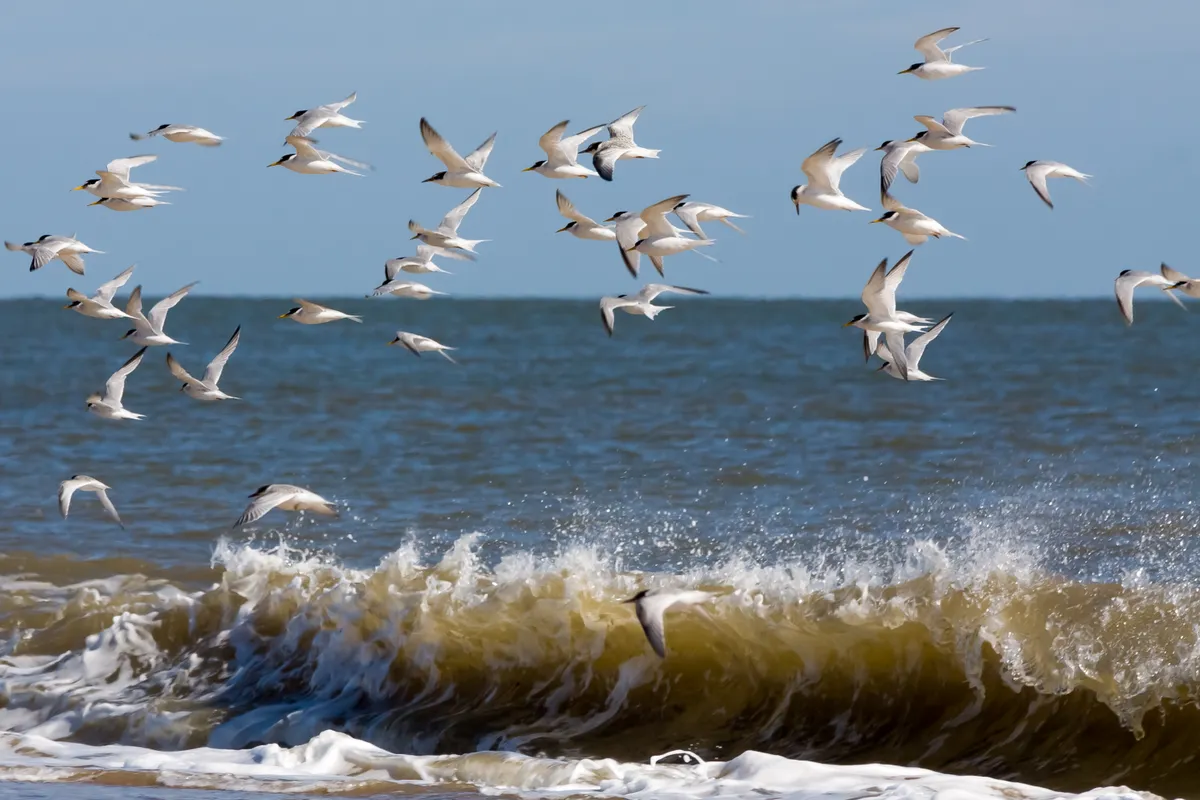
Holkham walk
4.8 miles | 3 hours | easy/moderate
1. Corsican woods
From the car park at the end of Beach Road, head to the north-west corner and follow the Peddars Way and Norfolk Coast Path through a kissing gate. The footpath hugs the edge of Pinewoods Holiday Park for half a mile. On the left you can see Abraham’s Bosom, a lake that once opened out into the sea.
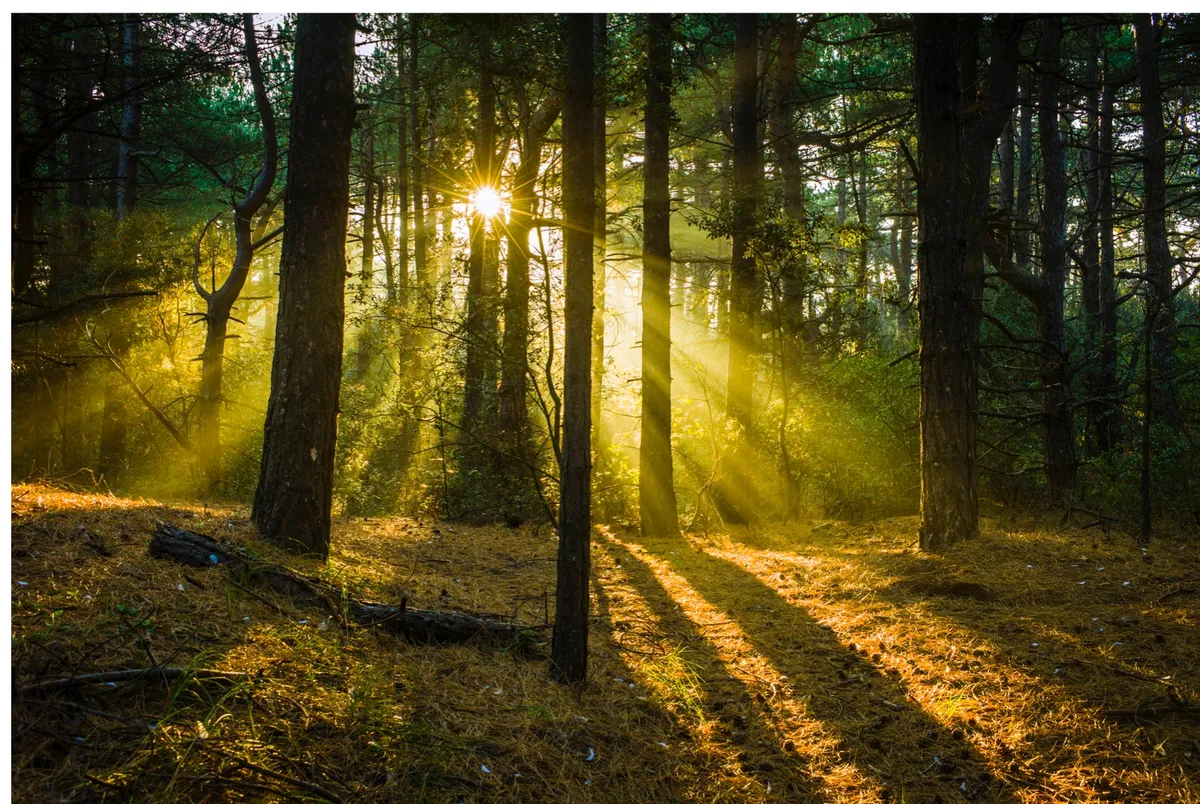
Continue along the hard track with farmed marshland on the left, reclaimed in the 17th century with the construction of drainage ditches and embankments. In the 19th century, the Earl of Leicester commissioned the planting of a pinewood, now on your right – the Corsican, Scots and maritime pines were introduced into the dunes to protect the farmland from sand blown in by the wind.
Ignoring all other turn-offs, including nature trails, follow the main footpath until you reach a crossroads where the coast path turns right.
2. Salts Hole
At this point, you may wish to extend the walk by turning left, passing through the car park before following Lady Anne’s Drive to the village of Holkham and possibly on to Holkham Park. If not, go straight over at the crossroads and take the path through the trees.
After about 600m you will come to a saltwater lagoon on the left, known as Salts Hole. And a little further along is the George Washington Hide. Lapwings, redshanks, marsh harriers, grebes and many species of duck are just some of the birds that can be seen from the hide.
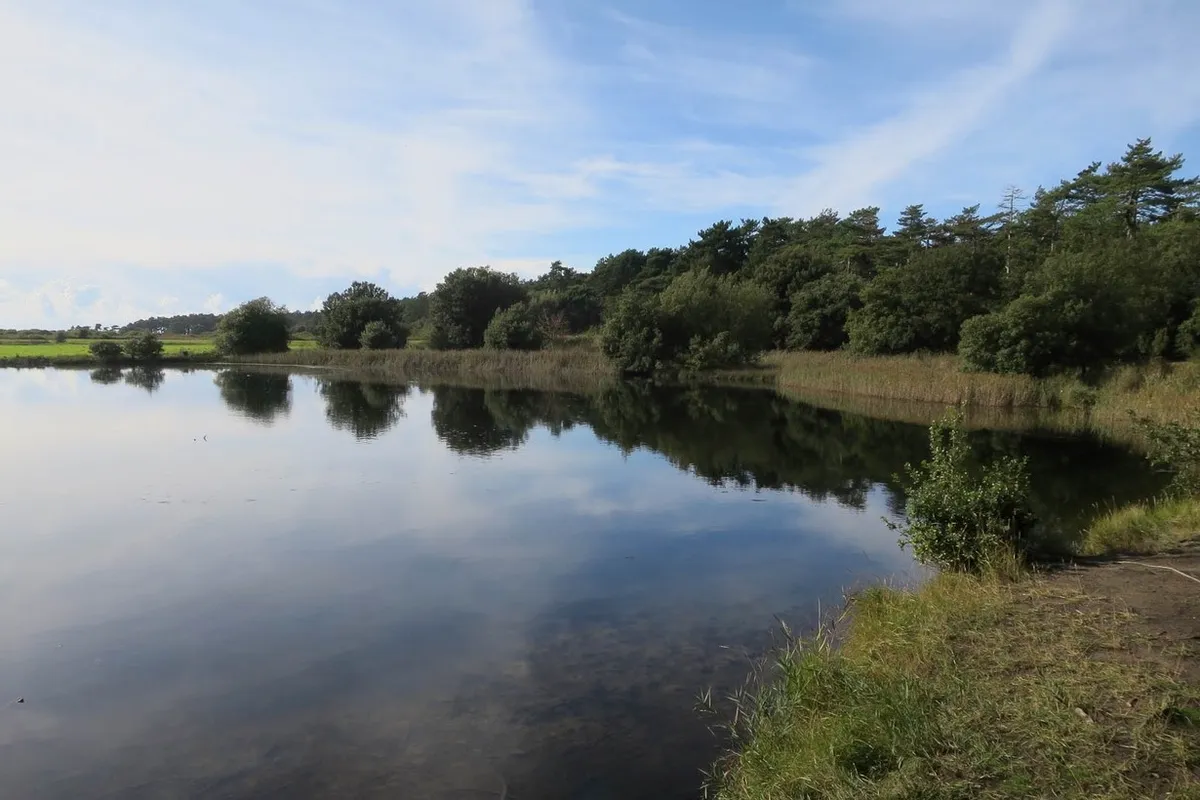
3. Trees and tide
From here, follow the boardwalk through the pinewood to the beach. A curious blend of whirling sounds filters through the forest – the crash of the tide combining with the whistling wind through the trees.
Once out of the woods, turn right and make your way along the sand. At high tide, the dunes on the beach sometimes trap sea water to form temporary lakes, cut off from the ocean. At low tide, as you stride out across the bay, the expanse of sand, sea and sky seems to extend for an eternity.
After following the beach for about two miles, you will come across some colourful raised beach huts on your right. Pass the huts and turn right before reaching the Lifeboat Station, then follow the track back up over the rise and down to the car park.
Holkham map
